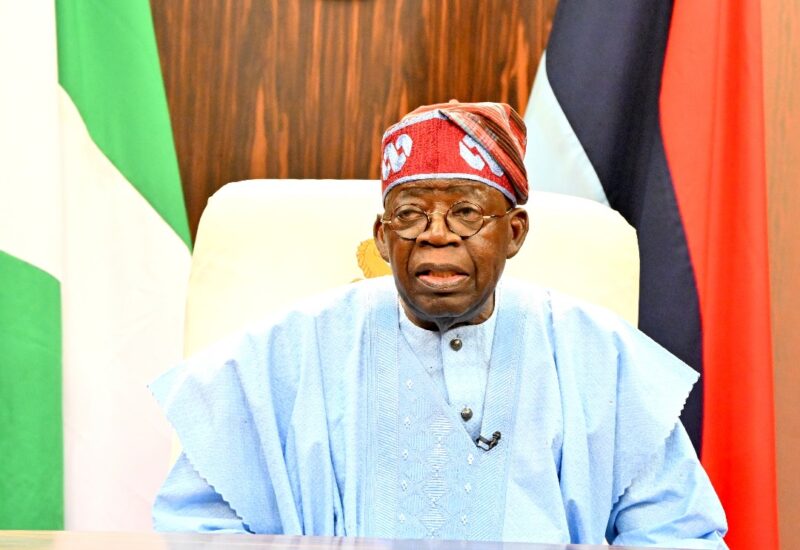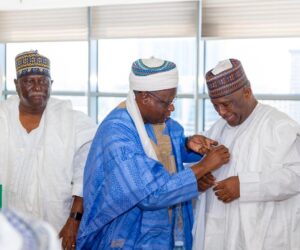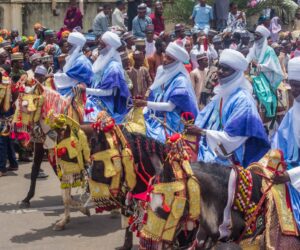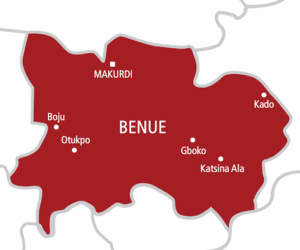As Nigeria continues its search for workable solutions to its deepening insecurity, President Bola Tinubu on Wednesday declared a nationwide security emergency, unveiling a series of measures he said are intended to confront criminals “with courage and determination” and restore peace across the country.
Mr Tinubu said his administration is committed to going all out against terrorists, bandits and other violent groups that have continued to torment Nigerians.
He said the government has the capacity and the will to make the country safe, adding that citizens deserve to live without fear.
To achieve this, the president directed the police and army to commence massive recruitment exercises, pledged support for states operating their own security outfits, and asked the National Assembly to amend relevant laws to allow states willing to do so to establish their own police forces.
Below are six key highlights of the president’s emergency security measures.
1. Police to recruit 50,000 personnel
A major component of the new security push is large-scale recruitment into the police and the military. By Mr Tinubu’s declaration, the Nigeria Police Force is now authorised to take in an additional 20,000 personnel, raising the total number of new officers to 50,000.
The president said boosting manpower is essential to confronting insecurity nationwide, especially in communities where police presence is weak or non-existent.
This directive follows on earlier approvals by Mr Tinubu for the nationwide upgrade of police training facilities. In addition, police authorities have now been empowered to use National Youth Service Corps (NYSC) camps as temporary training depots to fast-track the capacity-building process, the statement said.
Mr Tinubu also instructed the withdrawal of police officers from VIP escort and guard duties. Those withdrawn, he said, will undergo “crash training” to prepare them for deployment to frontline areas where their services are urgently required.
The goal, according to him, is to “debrief them and deliver more efficient police services” in communities grappling with insecurity.
2. SSS to deploy trained forest guards
Another major element of the emergency declaration is the deployment of trained forest guards under the State Security Services (SSS).
The president said the agency has received his “immediate” authorisation to send out all forest guards already trained specifically to confront terrorists, bandits and armed groups operating from forests across the country.
He described forests as a major sanctuary for criminal gangs and insisted that such spaces must no longer serve as safe havens.
“The agency also has my directive to recruit more men to man the forests. There will be no more hiding places for agents of evil,” he said.
By strengthening intelligence and surveillance capacities in forests, the government hopes to disrupt the operations of violent groups who use these terrains for planning attacks, storing weapons and holding abducted victims.
3. Support for state policing initiatives
President Tinubu called on the National Assembly to begin reviewing existing laws to enable states that desire it to establish their own police force.
This marks one of the strongest indications yet that the federal government is ready to decentralise policing in response to escalating insecurity and increasing pressure from state governments. Although Mr Tinubu has advocated for state police in the past, he has not used his office to strongly push for the National Assembly to make it a reality. He now appears ready to do so.
In his Wednesday statement, Mr Tinubu said states willing to run their own policing systems must be given the legal backing to do so. He added that his administration would support states that have already created security outfits to complement federal structures.
While the president did not give details of how state police should operate, his appeal to lawmakers signals early steps towards a constitutional and legal rethink of Nigeria’s highly centralised security framework.
4. States warned against siting boarding schools in remote areas
As part of the emergency measures, Mr Tinubu cautioned state governments against establishing boarding schools in remote or poorly secured areas.
Citing the rising pattern of school abductions, the president said the safety of students must now take priority over convenience or expansion drives. He urged states to reassess existing school locations and ensure adequate security is provided before approving or running boarding facilities. Under Mr Tinubu, there have been mass kidnapping of students in states like Kebbi and Niger.
5. Mosques and Churches
The Nigerian leader asked churches and mosques to seek security protection for large gatherings.
“Mosques and churches should constantly seek police and other security protection when they gather for prayers, especially in vulnerable areas,” he said, warning that soft targets must no longer be left exposed.
This directive reflects the government’s concern over the frequency of attacks on religious gatherings and rural communities, many of which occur in places where security presence is thin.
6. End of open grazing and push for ranching
Addressing persistent clashes between herders and farmers, President Tinubu reiterated the role of the newly created Ministry of Livestock in resolving the crisis and promoting modern livestock management.
READ ALSO: Turkish fugitive arrested in Nigeria, repatriated
He called on herders’ associations to engage fully with the ministry, embrace ranching, and abandon open grazing practices which have fuelled deadly conflicts in multiple states.
Mr Tinubu also urged herders in possession of illegal arms to surrender them, emphasising that fully adopting ranching is “the path forward for sustainable livestock farming and national harmony.”
According to him, the federal and state governments will collaborate closely to ensure the livestock sector is reformed “once and for all.”












